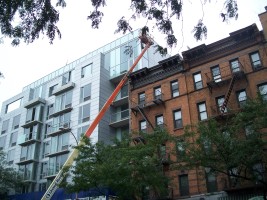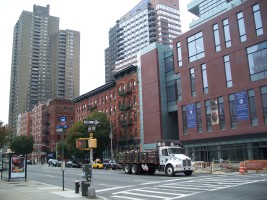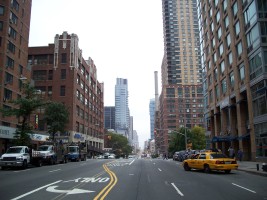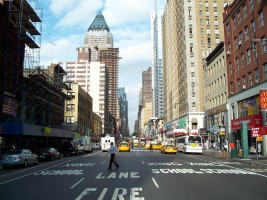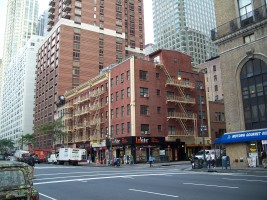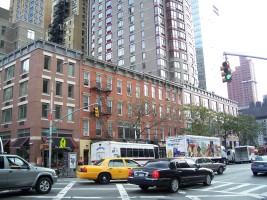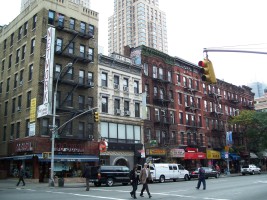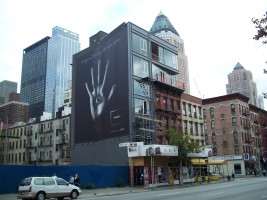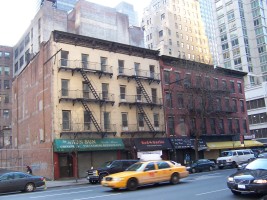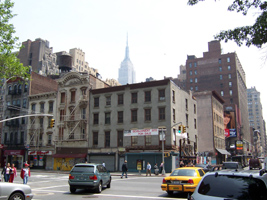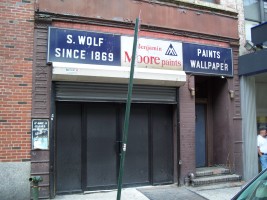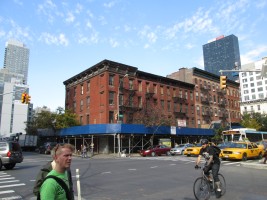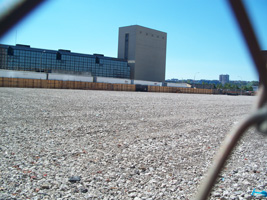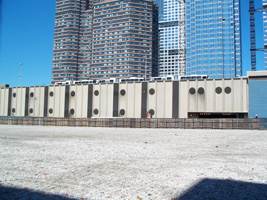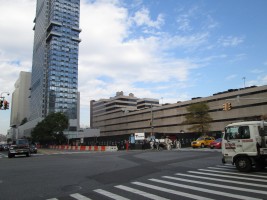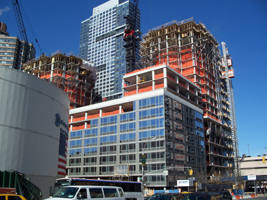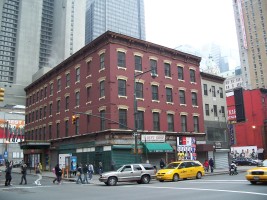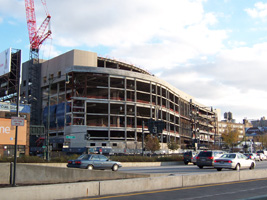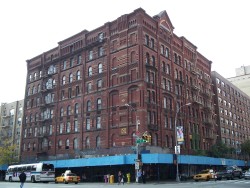Hell's Kitchen
Hell's Kitchen is a Manhattan neighborhood roughly bounded by 34th Street on the south, 57th Street on the north, 8th Avenue on the east and the Hudson River on the west. This area was initially settled as a shantytown by poor Irish immigrants in the mid 19th century who found work on the nearby docks and railroad. After the American Civil War, tenements were constructed, although the neighborhood retained its rough character through most of the 20th century.
The exact origin of the name is lost in time and subject to numerous apocryphal stories. However, the name first appears in print in the September 22, 1881 New York Times and it's meaning is summed up by a quip attributed to a 19th century policeman describing the dangerous area, "Hell's a mild climate. This is Hell's Kitchen." The liminal nature of the neighborhood remained through prohibition-era speakeasies and post-industrial gang violence.
Developers began floating the name "Clinton" in 1959 to associate the area with DeWitt Clinton Park (52nd Street at 11th Avenue, named after a 19th century NY governor). However, the Hell's Kitchen moniker and its gritty implications remained even as the area gentrified well beyond it's humble and difficult origins.
Plans for extensive demolition and redevelopment in the 1960s were squelched by the implementation in 1968 of the Special Clinton District, which created zoning restrictions that (along with the economic decline of the city) limited redevelopment of the area for the next 20 years. When I first moved to NYC in the early 1990s, it was still a comparatively affordable neighborhood and was home to many actors, artists and immigrants.
However, the intimate proximity to midtown made the area too geographically attractive to discard under neoliberalism, and the weakening of zoning restrictions led to its redevelopment in the early 21st century as yet another yuppie playground in vaguely working-class garb.
These images begin in the fall of 2007 as a document of the area's transition, including numerous architectural absurdities resulting from the contradiction between commerce and regulation.
